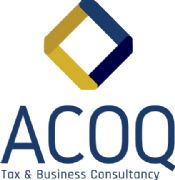Portugal
Company Formation in Portugal
Portugal Business Experts
Recent forum posts
-
Academic Writing Services
Quality Dissertation is well known for delivering high quality assignment writing help, dissertation writing help, coursework writing help and essay writing help to UK university and college students. Our academic assistance service comes at a very affordable price. With a team of writers, specialised in different subject areas, we are able to assist all students for different field of studies.
Total Posts: 9 Last post by jasminandeson31
-
Human Resource Assignment Help
Looking for top-notch Human Resource assignment help? Look no further than MyAssignmentHelp.co.uk! Our platform offers comprehensive assistance tailored to your HR needs. Whether you're tackling topics like recruitment, employee training, performance evaluation, or organizational behavior, our expert team is here to guide you
Total Posts: 1 Last post by ameliawillson

Portugal Company Formation
The incorporation process in Portugal has 6 stages. These are as follows:
- Search the National Registry of Collective Entities database for the availability of a company name. This takes one day and the fee is included in stage 2.
- Registration at the one-stop shop, which takes one day and costs between 300 and 360.
- Register employees for social security insurance within 10 working days after the tax declaration. This takes one day and can be done at the same time as stage 2.
- Deposit the initial capital online or at the one-stop shop. This takes one day and can be done simultaneously with stage 2.
- Submit information to the Labour General Inspection, which takes one day.
- Register for accident compensation insurance with a private insurer. This takes a day.
The most common ways of establishing a business and investing in Portugal is to either set up:
- A company
- A branch
The normal types of company established in Portugal are shareholder companies (SA) and limited liability companies. The main similarity for investors here is that responsibility of shareholders is commonly restricted to their interest in the capital of the company.
Of course, these are not the only ways to invest in Portugal. Joint ventures and partnerships are also used (albeit, less so) and will be detailed presently.
Shareholders company (SA)
An SA is required to have at a minimum of five shareholders. This can be reduced over time. The actual set up of the SA can be made with one shareholder, except in the case of Madeira offshore companies and subsidiaries of a holding company.
The SA must register with the commercial registry upon commencing business activities. The minimum social capital is 50,000 Euros that can be paid cash or kind. To pay in kind, it is required for you to affix to the notarial deed a document from an auditor attesting the value of the assets to be included in the company's capital
Normally, most businesses have a structure with a general meeting, board of directors and a statutory auditor. In specific circumstances, a single executive can replace the board of directors.
Limited liability company (LDA)
Generally smaller companies, an LDA usually starts with lower nominal capital than an SA. It must have at least two quota-holders, although it is possible to do this with just one.
The LDA must register with the commercial registry and the start of its activities with the Tax Authority.
The minimum of capital is 5,000 Euros, and it can be paid on the same terms as those allowed for the SA.
An LDA must have a general meeting. Management structure can be organised to tailor the needs of the business. The business will also require a statutory auditor if two of the following three conditions are surpassed over two consecutive years:
- The total of the balance sheet exceeds 1,500,000 Euros
- Net sales exceed 3,000,000
- Average number of employees is over 50 in the year
Partnerships
Partnerships are not often used in Portugal as it implicates some partners with unlimited liability. That said, liberal professionals, like lawyers, economists, engineers, etc, commonly use partnerships. The partnerships are invariably consolidated by a notarised deed, articulating the contribution of each partner and outlining the partnerships by-laws, method of profit distribution, and the admittance of new partners.
On-the-Spot Company
It is possible to create a company (LDA or SA) with a single day in Portugal. Actually, it's possible to establish yourself in just over an hour. This is achieved through a one-stop office. Investors will no longer have to obtain in advance a certificate of company admissibility from the National Registry of Companies (RNPC). Nor will it be necessary any longer to sign a public deed, except in certain cases.
During the incorporation process, the definitive legal person will be identified, a Social Security number will be issued, and the business will immediately receive its memorandum and articles of association, and an extract of the entry in the Commercial Register.
These steps are a way of contemporising administration, and they are the inaugural move toward a simplification between business and public admin. Portugal is consequently one of the most efficient locations in Europe to establish oneself:
- Streamline set-up (little more than an hour
- Distinctly less bureaucracy and red tape (a single application form)
- One of the cheapest, standing at approximately 360 Euros
In half a year in 2005, over 1000 businesses successfully utilised this approach. It is a welcome addition to Portugal's business environment and is a veritable innovation in fats-track entrepreneurialism.
The statutory audit process
For companies where there is a supervisory body, the statutory audit process is achieved by involving statutory auditors in that body or by the exercise of the functions of a sole supervisor or of a statutory audit body.
Where there is no internal supervisory body, the statutory audit process is performed in accordance with legislation, in which case the provisions relating to companies or other entities having such a body shall apply to the statutory audit process and to the statutory auditors. The execution of the statutory audit implies that the statutory auditors are subject to the range of powers and duties attributed to the other members of the internal supervisory body of companies or other entities or to the body itself, without prejudice to its own status.
In the case of those companies subject to the statutory audit requirement, the issue of a statutory audit certification is mandatory. The certificate should be issued solely by the statutory auditors who carry out the aforementioned activities.
Offshore Companies
By choosing to incorporate an offshore company, business owners and investors can set-up a business outside the jurisdiction of its operations. Offshore companies are traditionally, but not exclusively, incorporated for lower fees and taxes. Business owners must abide the regulations of the offshore jurisdiction, and must not trade within the jurisdiction.
The benefits are vast. As aforesaid, reduced tax and fees are often big factors when considering offshore incorporation. A company may also choose and offshore location to:
- Simplify set-up and maintenance - entrepreneurs may find bureaucracy and red tape less of an obstacle in offshore jurisdictions
- Assume anonymity - the names of owners and directors are not for public record, and references to the company may only be made in its registered agent
- Ensure legal protection - for instance, some jurisdictions favour corporate governance, meaning a company is only liable to offshore laws as opposed to those in its areas of operation
- Protect assets - business owners may opt to arrange their assets and transactions in such a way that protects them from liability
Characteristics of an offshore company:
- Memorandum and Articles of Association
- Certificate of Incorporation
- Registered Office/Agent
- Shareholders / Members
- Directors / Managers
- Company secretary
- Statutory Register
- Bookkeeping
Traditional locations for offshore incorporation are tax havens, such as the British Virgin Islands, Panama and Monaco. Other favoured areas include India, the Bahamas, Dubai, the Cayman Islands, Cyprus, Seychelles, Marshall islands, Delaware, Turks & Caicos Islands, Hong Kong, Jersey, Guernsey and the Isle of Man.
Branch office
The branch office name must be registered with the National Registry of Collective Persons (RNPC).
To establish and register your branch with the Commercial Register, the following documents must be yielded:
- Parent company's incorporation documents
- The attest of the parent directors board, confirming the opening of the branch
- A power of attorney
Madeira and Azores Free Zones
There are four main areas of activity which can take place in the Madeira and Azores Free Zones:
- Industrial and commercial activities (these may be conducted only within the specified free zone of Cancial in Madeira)
- International service operations, including holding, invoicing and management companies
- Offshore financial services
Such services may be carried out in the form of offshore branches or through autonomous legal entities. The latter may be credit institutions, financial companies, insurance and reinsurance companies, leasing and factoring companies or collective investment funds. It is also possible to use the licit form of an offshore trust in order to conduct these business operations.
Companies which establish themselves within the Madeira or Azores free zones are overseen by the Bank of Portugal or by the Portuguese Insurance Institute. In principle, they are not obliged to comply with exchange control or other regulations which are only applicable to residents.
Generally, offshore banking and financial companies are entitled to the same financial and tax benefits available to industrial and commercial companies operating within the confines of the free trade zones.
Joint Venture Agreement
Portuguese law permits and regulates this company structure. It is invariably reserved for such things as specific projects. For instance, large construction ventures often use this form of business. The agreement must be written and notarised. It must show the members' interests and profit shares, as well as the lead member.
European economic interest grouping (AEIE) - Individual or collective members located on the EU member states that are associated with unlimited liability.
Association of business enterprises - Not dissimilar to AEIE, but the members must be Portuguese entities and are treated just like a company.
Click here to Ask an Expert about Company Formation in Portugal
Organisations that can assist with Company Formation
-
> Accounting Advantage Lda

A complete service with everything you need to start and develop your business


-
> Nominus.com

When expanding your business to Portugal, don’t forget to protect your brand. We provide Trademark Registration Services in Portugal and in the entire European Union.


-
> ACOQ CONSULTING

Business Information is presently a key word that will strongly affects your future . Our Service intends to provide information for management necessary to Create, Maintain and Develop businesses.





